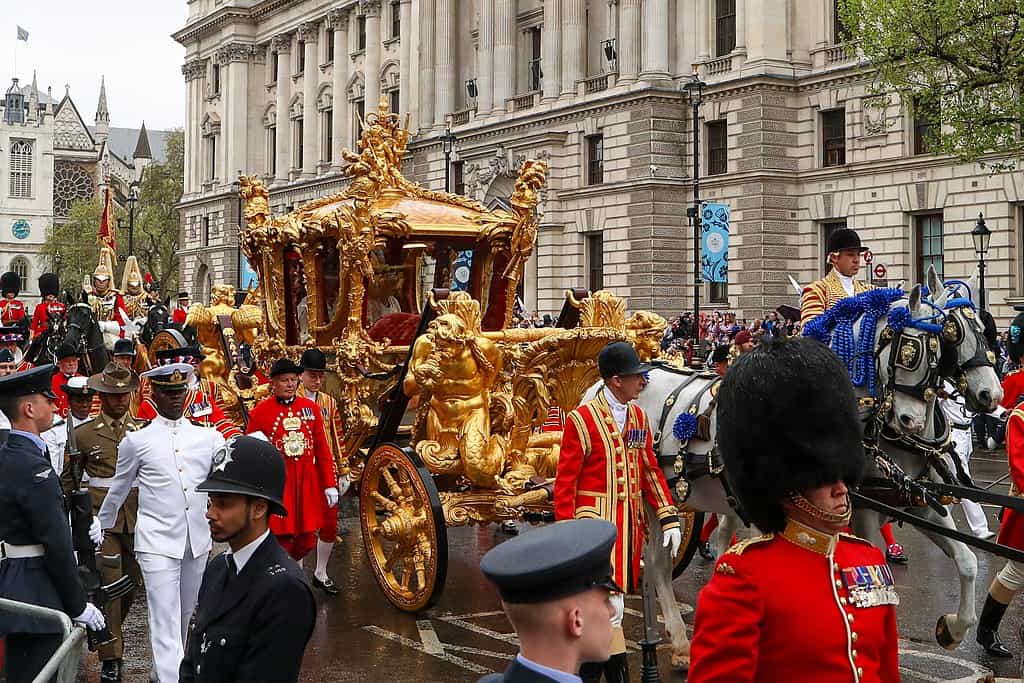Of all the many arguments for and against the monarchy, it appears to me that the oft-cited argument about tourism alone should probably be enough to secure the monarchy’s place, even from the most cynical of places – money.
On average, it’s calculated by ‘Brand Finance’ that the monarchy costs around £500m a year – which is actually more than the anti-monarchy group Republic estimates – whereas in the same period, it brings in around £2.5bn.
Even the counter-argument that the added expenses of the coronation inflate this number fails, I believe, because these expenses come along with possessing a monarchy, and are therefore necessary costs to the bonuses (£2.5bn) of the institution.
Even so, talking to many people of all backgrounds and ages about the recent coronation of King Charles III, the focus of the conversation seems to be on the optics of the coronation; on the opinion of the public and how the coronation, and the new King, would affect their opinion on the monarchy.
Now, obviously, PR does play an incredibly important role – there is no doubt in my mind that if the majority of people were actively opposed to the monarchy, it would be dead within years, and therefore it’s obvious that public opinion is critical to the survival of the monarchy.
The ongoing drama of the wider royal family has interrupted the importance of the new King’s duties and the significance of having a coronation for the first time in over 70 years. The focus of many discussions I have personally been involved in and have seen going around has been Prince Andrew’s dark past and Harry and Meghan’s love life.
Whilst these topics should be discussed and the royal family in general is a huge part of the British identity, they should not necessarily be the focus of the coronation. I understand why they were brought up more with the coronation looming – and even around the Queen’s death – but they seemed to overshadow what King Charles coming to the throne truly mean for our country.
But this cuts straight to the meat of the issue. By approaching the monarch and the coronation through this lens – the lens of how to make the monarchy survive via public opinion, we may be missing out on opportunities and more-positive approaches to the benefits of our current system.
Why not take a more optimistic approach to the possibilities of monarchy? Instead of saying immediately “how does the monarchy’s actions affect their ability to survive?”, why don’t we ask, more optimistically, “how can the monarchy’s actions improve the state of the nation?”
Aside from the rather cynical monetary advantages of such a system, and the advantage of having a head of state who no one elects, the monarch can provide other chances and bonuses. They can be a beacon for change, shown in the new King’s passion for conservation and climate change.
Perhaps it is limited by the constitutional requirement for the monarch to appear neutral, but there are bipartisan causes which most, if not all, would agree with. Being an open and welcoming nation to different faiths is one, seen in his inclusion of all major faiths during his coronation.
Further to this, and in the same vein, the unification of the nation in that grand abbey of Westminster, of all different backgrounds, is also a great moment of symbolism.
However, depressingly, even this is seen through the lens of a ploy to garber public opinion, and not a good goal in its own right.
For better or for worse, it is obvious that much of the British national identity is linked in tandem with the monarchy, which is currently facing its first change in face since the 1950s.
No matter where you stand on the issue – whether you are a hardcore royalist or someone who protested at the coronation celebrations – it is hard to deny that the British, or more specifically the English, identity is linked with many perhaps outdated, and most certainly stereotypical, ideas of monarchy.
These ideas are also linked with further connotations of having a ‘stiff upper lip’, ‘putting on a good show’ and, of course, teatime. Further concepts linked with Britishness, such as resilience, have been inherently tied into the public’s conscience to monarchy.
Taking the example of resilience, the public focus of George VI remaining in London during the Blitz allowed us to epitomise the English public through a single figure, and this continued into the late Queen’s image – a singular person in which the British image was placed.





